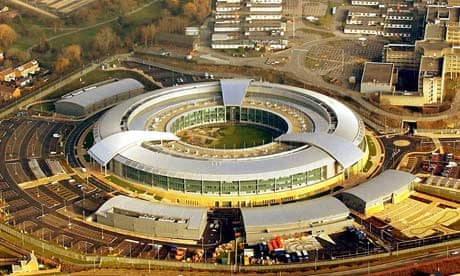On the evening of Tuesday, 5 July 2005, I attended an invitation-only seminar at the London School of Economics. Those attending included academics, some experienced journalists, senior officers from the Metropolitan Police's counter-terrorism command and the security services and officials from the Home and Foreign and Commonwealth Offices. The purpose of the seminar was to discuss the difficulties that arise in media coverage of security issues.
One issue that surfaced early in the discussion was trust. Here's how one of the media people put it (I'm paraphrasing from memory).
"We all agree that some of the potential threats of al-Qaida-type terrorism – for example, the release of radioactive material or a biological agent in a crowded city – are so horrendous that democracies would be justified in taking the most draconian measures to counter them. Such measures would drastically curtail civil and even human rights.
"But we in the media are never in a position to assess whether measures proposed by security authorities are proportionate, rational or reasonable, because 'national security' prevents them from revealing the evidence that has led them to demand further intrusive powers. So we're left with a simple, unpalatable choice: trust the authorities or question the proposed measures and be pilloried for being irresponsible or unpatriotic.
"The problem is that some official actions in the past, such as sending tanks to Heathrow to counter an alleged terrorist threat, don't exactly inspire confidence in the security authorities' competence or judgment. How can we tell whether a request for an extension of powers is a reasonable demand or simply another case of bureaucratic empire-building at the expense of liberty? Answer: we can't."
Not surprisingly, the seminar ended on an inconclusive note. Afterwards, I walked up to Holborn and caught the tube to King's Cross.
Two days later, a terrorist bomb exploded on that same section of the Piccadilly line.
Last week's hoo-hah about proposed extensions of electronic snooping powers for GCHQ, antiterrorism cops and the intelligence services brought memories of that 2005 seminar flooding back. The basic scenario hasn't changed. Because of technological changes, we are told, criminals and terrorists are using internet technologies on an increasing scale. Some of these technologies (eg Skype) make it difficult for the authorities to monitor these evil communications. So we need sweeping new powers to enable the government to defend us against these baddies. These powers are as yet unspecified but will probably include "deep packet inspection" as a minimum. And, yes, these new measures will be costly and intrusive, but there will be "safeguards".
The fierce public reaction to these proposals seems to have taken the government by surprise, which suggests ministers have been asleep at the wheel. My hunch is that the proposals were an attempt by the security services to slip one over politicians by selling them to senior officials in the Home Office, who, like their counterparts across the civil service, know sweet FA about technology and are liable to believe 10 implausible assertions before breakfast. In that sense, the Home Office has been "captured" by GCHQ and MI5 much as the health department has been captured by consultancy companies flogging ludicrous ICT projects.
The deputy prime minister was deputed to defuse the row about these new surveillance powers before it got out of hand. He is now promising open parliamentary hearings about the measures. The draft clauses of the new bill, he says, will be published in early May and will be scrutinised by the Commons home affairs select committee in public session.
The fact that these minimal undertakings are regarded within government as significant concessions is a measure of how far the rot has gone. But we are where we are. So here are some questions for the select committee members.
1. Nobody disputes that bad guys use the internet and mobile phones. But what is the empirical evidence that new surveillance measures are necessary? How do independent experts assess the reliability of this evidence?
2. What are the details of the surveillance measures proposed? (If the answer is: "We can't tell you because of national security", return to base.)
3. What is the evidence that these measures will be effective against the alleged threats? How do independent experts assess this evidence?
4. What costs will these measures impose on internet service providers and other companies?
5. Why is the internet being targeted when outlawing the sale of non-contract mobile phones would be a much more effective way of disrupting criminal communications?
6. Are the proposed measures "proportionate" in the sense of balancing the erosion of civil liberties against empirical measures of the dangers posed by online crime and terrorism?
7. Given what we are learning from the Leveson inquiry about our public institutions, why should we trust them with anything, let alone our civil liberties?

Comments (…)
Sign in or create your Guardian account to join the discussion